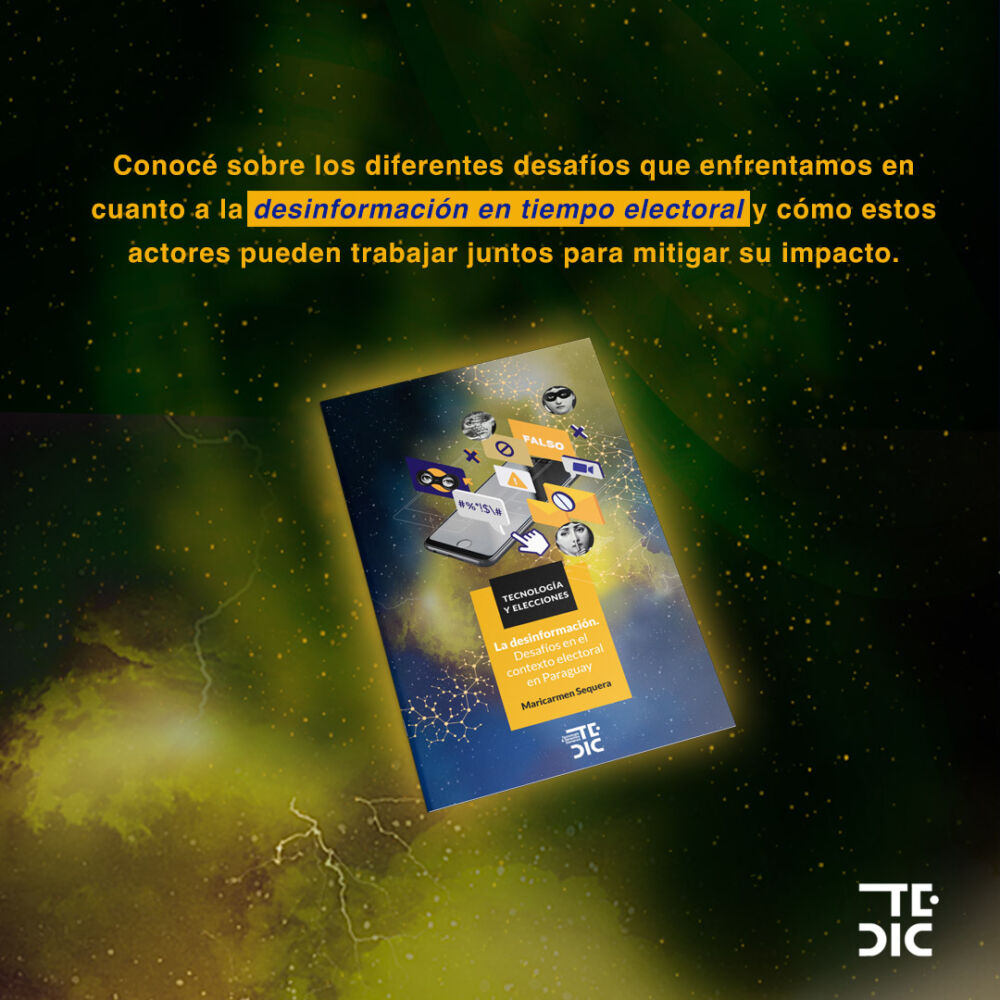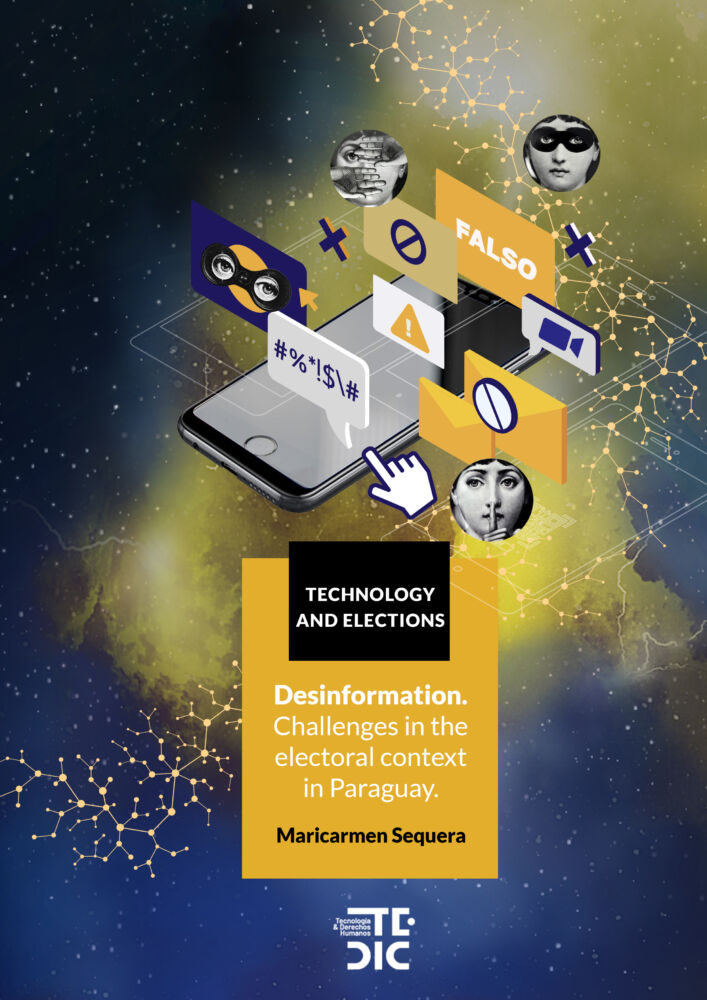
What happens when we increasingly rely on social media and the Internet for almost all our information? What information do we see and what do we miss? How do we know if a photo or a tweet is authentic or truthful? And… what can we do if we need more clarification?
This research, conducted by Maricarmen Sequera and funded by the National Endowment for Democracy (NED), focuses on the challenges that disinformation presents in the electoral context of Paraguay.
Disinformation in the context of elections has become a crucial challenge in the digital era. As information flows rapidly through online platforms and social networks, malicious actors find fertile ground to manipulate and distort reality to influence electoral outcomes and public opinion. However, addressing this problem poses a complex tension between the need to protect the integrity of the electoral process and preserve freedom of expression.
Freedom of expression is a fundamental right that guarantees diversity of opinions and open public debate. However, when used to spread disinformation and fake news during elections, it can undermine trust in the democratic system and distort the electoral process. Therefore, the question arises of how to balance freedom of expression with protection against harmful disinformation. In this sense, it seeks to identify the most relevant factors that allow for a fertile ground for disinformation, such as network neutrality, confirmation biases, digital gender violence, echo chambers, deficiency in the regulation of personal data protection, intellectual property, cybersecurity, bots and content moderation among others.
In this sense, it is essential to understand this phenomenon that moves to the Internet with its factors that must be considered when thinking about appropriate, necessary and proportionate solutions to national, regional and global situations.
Regulation of disinformation is presented as a controversial and widely debated issue. Some argue that stricter regulatory mechanisms should be established to combat disinformation and ensure fair and transparent elections. However, others fear that excessive regulation could limit freedom of expression and open the door to government censorship or the suppression of dissenting voices.
Addressing disinformation in the electoral context requires a balanced approach that protects freedom of expression, promotes transparency, and ensures free and fair elections. This involves the active participation of various actors, such as the government, civil society, technology companies and the media, to develop effective digital education strategies, promote media literacy and strengthen the accountability of online platforms. Only through a multidimensional and collaborative approach can we face the challenge of electoral disinformation without compromising the fundamental values of democracy.
Challenges for thinking futures
Firstly, there’s no compelling evidence to suggest that disinformation campaigns are the main factor in altering the results of elections in a particular context. Instead, there are economic and political factors that must be considered.
Therefore, any attempt to modify legislation or public policy that seeks to “combat disinformation” without solid evidence should be questioned, as the responsibility to purify the discussion should not be attributed to the State or private platforms. Although propaganda and disseminating false information harm the democratic process, it is even more damaging to attribute to these entities the responsibility to regulate public discussion. In short, no simple solutions exist to a social and political problem like this. (Al Sur, 2019)
Among some challenges are the following:
- Modernize controls in electoral processes to face the challenge of disinformation campaigns in the Latin America and Caribbean region. The problem is complex in different dimensions, and to face it, the creation of a democratic, transparent and participatory regional instance that involves all stakeholders to observe and issue recommendations and proposals to both platforms and countries is proposed. The regional instance would be a space for public and private cooperation that work together in giving recommendations and proposals before political campaigns in electoral periods. (Al Sur, 2019)
- Paraguay urgently needs a comprehensive personal data protection law; it is the only one in South America that still needs one. In the context of disinformation campaigns in elections, the personal data protection systems of Latin America must be modernized and include attributions protections to both the protection agency and to the electoral systems.
- Promote a pluralistic discourse and avoid censorship. Including access, inclusion and literacy policies for the population will be key. Accessing a diverse information ecosystem is critical to mitigating disinformation and expressing oneself online. Likewise, it reduces echo chambers, confirmation biases, polarizations and digital gender violence.
- Regulate and ensure compliance with network neutrality. The concentration of the digital ecosystem in the region is also a problem, as it can promote disinformation campaigns through practices such as zero rating. This practice violates the principle of network neutrality and restricts user access to alternative sources of information, which can allow disinformation to spread.
- Strengthen the diversity of voices in investigative journalism and press media. Media concentration, like the concentration of technology companies and their business models, facilitates the proliferation of misleading or false information.
- Carry out a legal reform process after a broad debate with stakeholders (media, companies, academia, State) and experts to provide adequate and practical tools to the Electoral Justice to combat disinformation by constitutional principles and inter-American human rights standards.
It is not the role of legislators or private companies – content platforms – to define “true” and “false”. The challenge is to generate preventive measures focused on developing people’s critical thinking to be able to analyze and decide amid so much over-information that exists on networks. That is education in how we construct our thoughts and, based on what evidence is crucial in facing disinformation and fully exercising rights, such as the right to freedom of expression online.

